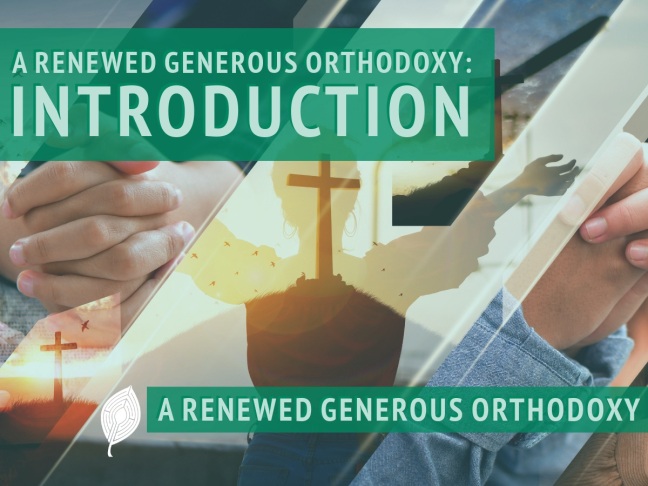Twenty years ago, American writer and leader in what was known as the ‘emergent church’ movement Brian McLaren released a book called A Generous Orthodoxy. It was his attempt to both bridge the divides within Christianity by celebrating the strengths of its different traditions and movements, and find a way of articulating the Gospel that might overcome the indifference and (often deserved) antipathy of those outside the Church and the exhaustion and ennui of those within. About the context for the book, he wrote:
So many of us have come close to withdrawing from the Christian community. It’s not because of Jesus or his good news, but because of frustrations with religious politics, dubious theological propositions, difficulties in interpreting passages of the Bible that feel barbaric (especially to people sensitized by Jesus to the importance of compassion), and/or embarrassments from recent and not-so-recent church history. […]
The approach you’ll find here … seeks to find a way to embrace the good in many traditions and historic streams of Christian faith, and to integrate them, yielding a new, generous, emergent approach that is greater than the sum of its parts. (Introduction)
Two decades on, and these words feel even more relevant. As the West’s many historical chickens (economic, ecological, social, and political) have come home to roost, many Christians are simply choosing to deny them rather than deal with them. And in this, the public voice of Christianity, especially in North America, has become even more strident and shrill, to the point where it often simply stamps the symbol of the cross on top of a nationalist or libertarian agenda without reference at all to the teachings of Christ or the Christian tradition.
In light of all this, McLaren’s approach, of trying to unify the faithful by embracing the good within different traditions, may seem a bit quaint, and too-little-too-late. But to my mind, it is still a wise path. There can be no doubt that institutional Christianity (in all of its incarnations) has caused a lot of harm. And yet, as true as this is, in the spirit of that same honesty, we must also accept that the Christian faith has also, over two thousand years, inspired some of the greatest acts of compassion and empathy, and wonderful advances in human rights and politics. And spiritual seekers of all stripes still see in the way of Jesus of Nazareth one of the greatest expressions imaginable of the possibility of the human spirit.
And so, over the next few weeks, I’d like to take on McLaren’s approach as my own, and celebrate what I believe must be celebrated within this broad, unwieldy, yet beautiful religious tradition we call Christianity. I hope you will find it thought-provoking and helpful in thinking through your own ‘generous orthodoxy’.


14 thoughts on “A Renewed Generous Orthodoxy: Introduction”